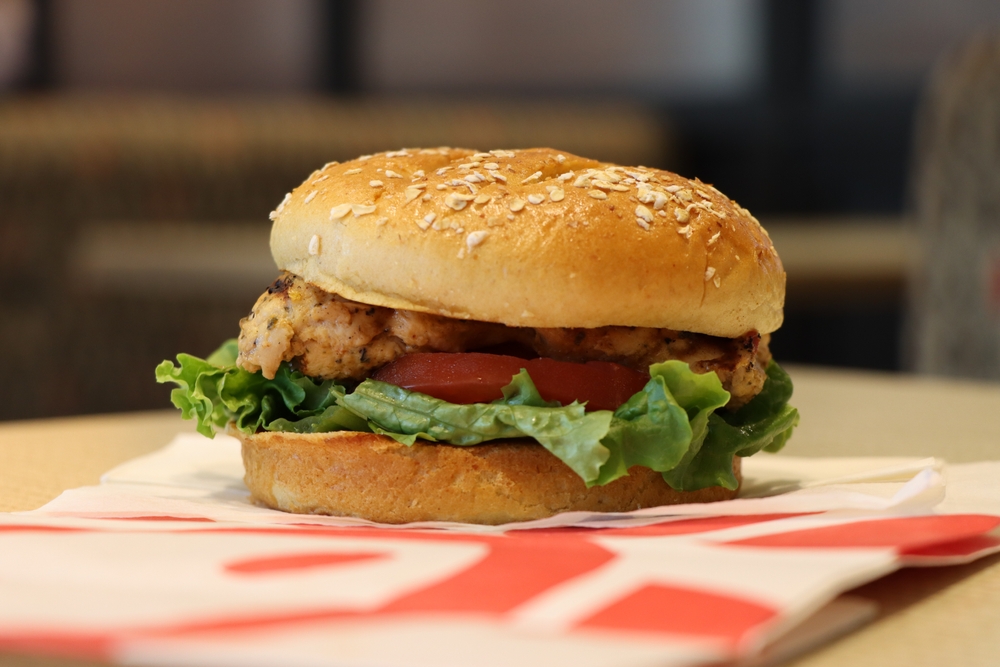Testosterone is a crucial sex hormone for both men and women, playing a vital role in maintaining bone density, muscle mass, sex drive, and overall health, as noted by the National Institutes of Health (NIH). However, our bodies naturally produce less testosterone as we age, which can lead to various health issues, including obesity, insulin resistance, and diabetes, as explained by WebMD. Fortunately, there are several ways to support healthy testosterone levels, such as regular exercise and a balanced diet. Surprisingly, some foods can have a negative impact on testosterone production, resulting in lower levels of this essential hormone. That’s why we consulted with health and nutrition experts who discuss seven testosterone-killing foods that you should avoid if you want to maintain optimal testosterone levels.
Certain foods, ranging from processed items to sugar-laden snacks, can disrupt our hormonal balance, including testosterone. By being aware of which foods to steer clear of, you can make informed dietary choices and help ensure that your body functions at its best. Whether you aim to enhance athletic performance or simply maintain your health as you age, read on to uncover five testosterone-reducing foods that you should always keep off your plate.
1) Alcohol
Consuming more than one or two drinks per day can lead to a reduction in testosterone levels in men. This is due to alcohol’s interference with the signals from the brain to the testes, disrupting testosterone production, and impairing the testes’ ability to produce the hormone through other means, as explained by Kelsey Kunik, RDN, a registered dietitian nutritionist and nutrition advisor for Zenmaster Wellness. Additionally, alcohol can disrupt sleep, and studies have shown that poor sleep can result in a 10 to 15% decrease in testosterone production.
Furthermore, alcohol affects the liver’s ability to metabolize estrogen, which further contributes to a decrease in testosterone production. To maintain healthy testosterone levels, it’s advisable to limit your alcohol consumption.
2) Spearmint
Spearmint is a commonly used herb in teas and various beverages. However, it has been observed to have anti-androgenic properties, which means it can potentially lower testosterone levels. This effect is more pronounced when consumed in significant quantities, so it’s advisable to avoid consuming spearmint if you aim to maintain healthy testosterone levels.
Kelsey Kunik, RDN, notes, “While spearmint’s testosterone-lowering effects could be beneficial for women with polycystic ovary syndrome (PCOS), more research is needed to understand how spearmint may impact testosterone levels in men.” Therefore, caution is warranted when it comes to spearmint consumption in men.
3) Sugar-Sweetened Beverages
Sugar-sweetened beverages such as sodas and energy drinks are loaded with added sugars and can lead to weight gain and obesity, research shows. As a result, sugary drinks can have a negative effect on testosterone levels. For example, a study published in Reproductive Biology and Endocrinology found that high consumption of sugar-sweetened beverages was significantly associated with low testosterone in U.S. adult males aged 20 to 39.
“Sugary drinks and other sugary foods raise blood sugar, which creates a hormonal cascade effect that lowers testosterone production,” explains Kunik. “High blood sugar prevents the pituitary gland from producing enough luteinizing hormone, which helps stimulate testosterone production in the testes.”
4) Refined Carbs from Breads and Pastries
Refined carbohydrates found in products like bread and pastries can negatively impact testosterone levels due to their high sugar content, which can contribute to weight gain and obesity.
Denise Coventry, RD, a registered dietitian specializing in gastrointestinal health, highlights, “Several studies suggest that testosterone levels may decline as a result of frequent consumption of foods outside the home.” She further explains that diets can suffer when large portions of bread, pastries, and desserts are consumed without balancing them with the necessary intake of dark green vegetables and wholesome home-cooked meals. Maintaining a balanced diet is essential for overall health, including testosterone regulation.
5) Processed Meats
Processed meats, such as sausages and bacon, are often high in saturated fat and have been linked to various health problems. They can also have a negative effect on testosterone levels. According to a study published in Human Reproduction, men who consumed high amounts of processed meat had a 15% lower volume of testosterone and a 37% decrease in sperm count.
“Studies have found low testosterone levels and low-quality sperm in men who consumed more processed meats and their diet was lower in beans, legumes, vegetables, and dairy,” states Nicole Ibarra, RD, a registered dietitian and nutrition coach.

